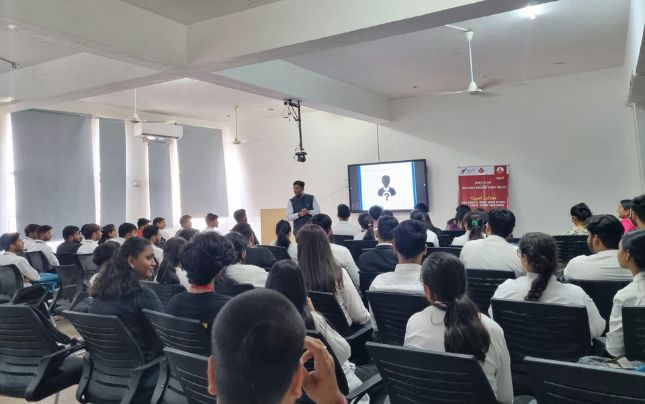The admission process for the BA LLB program typically involves filling out an application, submitting documents, appearing for an entrance exam, and completing counselling or interviews. Below is a detailed step-by-step guide.
Application Process
| Step |
Description |
| 1 |
Fill out the application form (available online/offline) through the university or entrance exam portal. |
| 2 |
Submit the required documents, including mark sheets, ID proof, entrance exam scorecard (if applicable), and photographs. |
| 3 |
Appear for the entrance exam (if required by the institution). Some universities grant direct admission based on merit. |
| 4 |
Attend the counseling session or personal interview, where candidates may be evaluated based on academic performance and aptitude. |
| 5 |
Receive the admission confirmation via email or official university website after verification of documents and fee payment. |
Entrance Exam Details
| Exam |
Details |
| CLAT (Common Law Admission Test) |
National-level law entrance exam conducted for admission to NLUs and many private law universities. |
| VGU Entrance Exam |
Conducted by Vivekananda Global University for admission to its BA LLB program. |
| LSAT India (Law School Admission Test) |
Standardized test accepted by many private law schools and universities across India. |
| CUET (Common University Entrance Test) |
Some universities accept CUET scores for admission to law programs. |
| University-Specific Entrance Exams |
Some institutions conduct their own entrance tests or interviews for admission. |
Important Dates (Approximate Timeline)
| Event |
Timeline |
| Application Start Date |
October – January (varies by institution) |
| Application Deadline |
December – May (depending on university) |
| CLAT Exam Date |
December (annually conducted) |
| LSAT India Exam Date |
January and June (twice a year) |
| VGU Entrance Exam Date |
As per university schedule |
| CUET Exam Date |
May – June |
| Counseling & Interviews |
June – July |
| Admission Offer & Fee Payment |
June – August |
| Course Commencement |
July – September |
Candidates should regularly check the official websites of their preferred universities and entrance exams for exact dates and updates regarding the admission process.
| Fee Type |
Amount (Approx.) |
Details |
| Tuition Fees |
INR 1-2 lakh per year |
Varies by institution and program |
| Registration Fees |
INR 5,000 - 20,000 (one-time) |
Paid at the time of admission |
| Examination Fees |
INR 2,000 - 10,000 per semester |
Depends on the number of subjects |
| Library Fees |
INR 5,000 - 15,000 per year |
Covers access to books, journals, and digital resources |
| Moot Court Fees |
INR 3,000 - 10,000 per year |
Includes participation in intra- and inter-college competitions |
| Hostel Fees |
INR 50,000 - 1.5 lakh per year |
Includes accommodation and basic amenities |
| Mess Charges |
INR 30,000 - 60,000 per year |
Covers food expenses in the hostel mess |
| Other Miscellaneous Fees |
INR 10,000 - 30,000 per year |
Includes sports, student activities, and IT services |
| Scholarships |
Varies |
Merit-based, need-based, and government financial aid options available |
